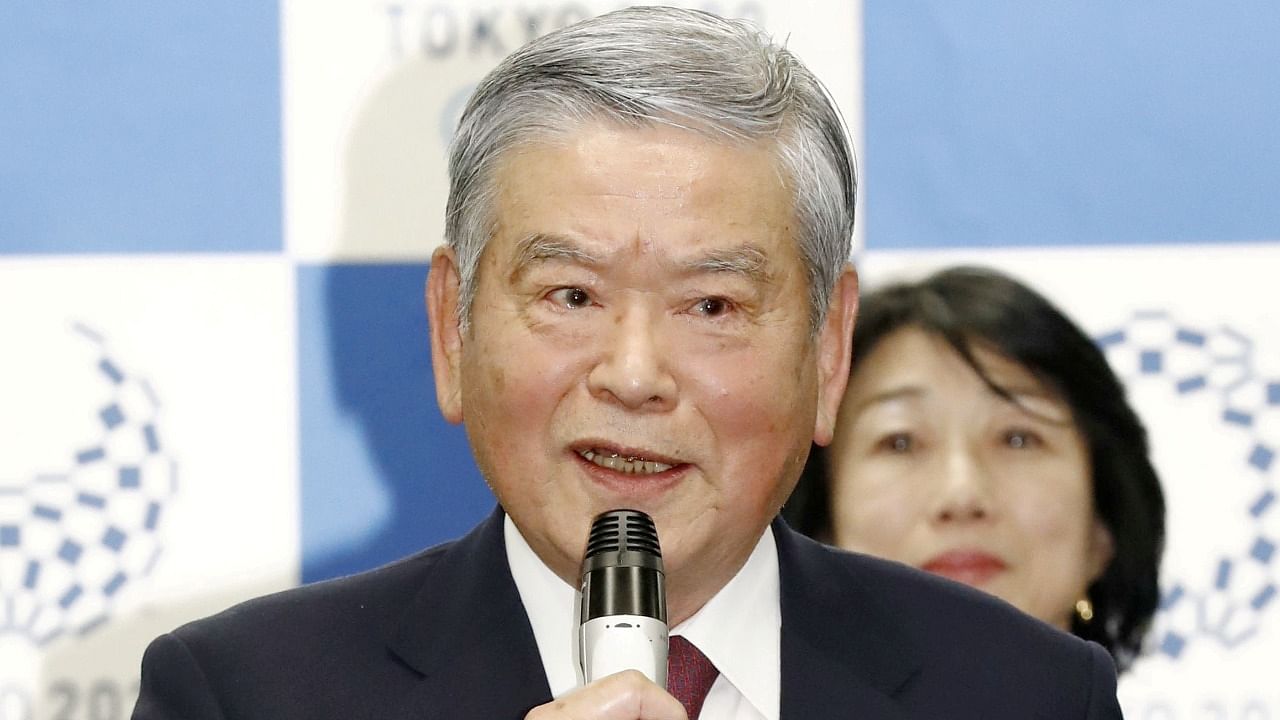
Equality activists called for more radical reform by Tokyo Olympics organisers on Friday, as Games chiefs prepared to replace one octogenarian male president with another after a sexism row.
Saburo Kawabuchi, 84, is expected to take over as head of the Games, with 83-year-old Yoshiro Mori to resign after his claims that women talk too much in meetings sparked a groundswell of condemnation.
But campaigners say only a complete shake-up can bring about real change, and accused Games kingmakers of failing to take the gender imbalance issue seriously.
"They think it's a game where they just invite another friend of theirs to take leadership, without giving other people -- especially younger people -- a chance," Kazuna Yamamoto, founder of gender equality campaign group Voice Up Japan, told AFP.
"I feel like they're wasting this chance -- but at the same time, we're not giving up," she said.
"We're going to keep pressuring the Olympic committee to do better."
Mori's comments sparked an outcry in Japan, where a petition calling for his resignation attracted more than 1,10,000 signatures in just two days, as sponsors, athletes and politicians lined up to lambast the former prime minister.
The International Olympic Committee said it considered the matter closed after Mori apologised, but eventually called his comments "completely inappropriate" as criticism mounted.
Campaigners have been heartened by the grassroots response in Japan, which ranked 121st out of 153 nations surveyed in the World Economic Forum's 2020 global gender gap report.
But they say there is still much work to be done -- pointing to the fact that there are just seven women among the Tokyo 2020 organising committee's 35 board members.
"You can't just say that things have changed because he's resigned," said Kazuko Fukuda, a campaigner for women's sexual and reproductive rights.
"If they don't have concrete plans, like having a zero-tolerance policy, saying they're against anti-discrimination and increasing the number of female board members, I don't think there will be any real change."
Japanese media reported that Mori has hand-picked Kawabuchi as his successor, and will continue to serve in an advisory capacity.
Fukuda says such backroom deals are typical of a culture in Japan where "women are not involved in decision-making."
"Important things don't get decided during the day in official meetings, they get decided after work at night," she said.
"Decisions should be made in official places during the daytime, but instead they're just approved. If women raise their voice there, they're labelled troublesome and noisy."
"That culture is one barrier that stops women from advancing."
Pride House Tokyo -- a community hub for LGBTQ people officially recognised as part of the Olympic programme -- published an open letter this week calling for organisers to take concrete steps to ensure discriminatory comments do not occur again.
Project chief Gon Matsunaka believes Olympic organisers must look beyond replacing Mori and undertake genuine reform.
"It's easy to say Mori should quit, but if that happens, that's the end of it," he told AFP.
"Nothing will change. That's why we published an open letter -- because we want to see action being taken."
Male-dominated culture is so "deeply rooted" in Japan that those close to Mori "thought there was nothing wrong and did nothing to stop him", Gon said.
"The fact that Japanese society is centred around men means that a lot of people suffer, and they don't see that. We want to change that way of thinking."